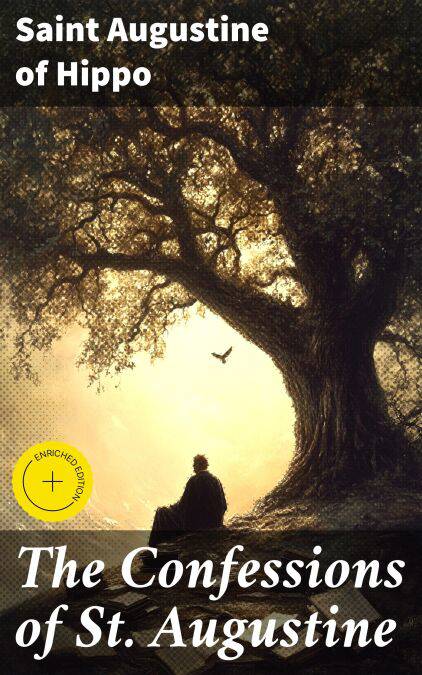
- Afhalen na 1 uur in een winkel met voorraad
- Gratis thuislevering in België vanaf € 30
- Ruim aanbod met 7 miljoen producten
- Afhalen na 1 uur in een winkel met voorraad
- Gratis thuislevering in België vanaf € 30
- Ruim aanbod met 7 miljoen producten
Zoeken
The Confessions of St. Augustine E-BOOK
Enriched edition. Autobiography of a Christian Saint and Early Church Father
Saint Augustine of Hippo
E-book | Engels
€ 1,99
+ 1 punten
Uitvoering
Omschrijving
In "The Confessions of St. Augustine," the revered theologian and philosopher crafts a profound narrative of his spiritual journey, blending autobiography with philosophical reflection and theological treatise. Written in the late 4th century, this seminal work employs a confessional style that emphasizes the introspection of Augustine's inner turmoil and eventual conversion to Christianity. Stylistically rich and deeply personal, the text captures the complexities of human sin, grace, and the search for divine truth, positioning Augustine as a critical figure in both Christian thought and Western literature. His innovations in narrative form set a precedent for future genres of personal reflection and introspection. Saint Augustine of Hippo, one of Christianity's most influential thinkers, lived a life marked by both fervent philosophical inquiry and profound moral struggles. Born in North Africa in 354 AD, Augustine experienced a tumultuous youth characterized by hedonism and skepticism before embracing Christianity. His formative experiences, particularly his interactions with the Manichaean sect and his friendships with intellectuals, culminated in a quest for truth that is vividly chronicled in his Confessions, allowing readers to witness the transformation of his faith. "The Confessions of St. Augustine" is essential reading for anyone seeking to understand the interplay between personal experience and spiritual enlightenment. Its exploration of the human condition resonates across the centuries, offering insights that are as relevant today as they were during Augustine's lifetime. Readers will find in Augustine's struggles a mirror reflecting their own quests for meaning, making this work a timeless companion on the path of spiritual growth.
In this enriched edition, we have carefully created added value for your reading experience:
- A succinct Introduction situates the work's timeless appeal and themes.
- The Synopsis outlines the central plot, highlighting key developments without spoiling critical twists.
- A detailed Historical Context immerses you in the era's events and influences that shaped the writing.
- An Author Biography reveals milestones in the author's life, illuminating the personal insights behind the text.
- A thorough Analysis dissects symbols, motifs, and character arcs to unearth underlying meanings.
- Reflection questions prompt you to engage personally with the work's messages, connecting them to modern life.
- Hand‐picked Memorable Quotes shine a spotlight on moments of literary brilliance.
- Interactive footnotes clarify unusual references, historical allusions, and archaic phrases for an effortless, more informed read.
In this enriched edition, we have carefully created added value for your reading experience:
- A succinct Introduction situates the work's timeless appeal and themes.
- The Synopsis outlines the central plot, highlighting key developments without spoiling critical twists.
- A detailed Historical Context immerses you in the era's events and influences that shaped the writing.
- An Author Biography reveals milestones in the author's life, illuminating the personal insights behind the text.
- A thorough Analysis dissects symbols, motifs, and character arcs to unearth underlying meanings.
- Reflection questions prompt you to engage personally with the work's messages, connecting them to modern life.
- Hand‐picked Memorable Quotes shine a spotlight on moments of literary brilliance.
- Interactive footnotes clarify unusual references, historical allusions, and archaic phrases for an effortless, more informed read.
Specificaties
Betrokkenen
- Auteur(s):
- Vertaler(s):
- Uitgeverij:
Inhoud
- Aantal bladzijden:
- 239
- Taal:
- Engels
Eigenschappen
- Productcode (EAN):
- 8596547789437
- Verschijningsdatum:
- 24/12/2023
- Uitvoering:
- E-book
- Beveiligd met:
- Digital watermarking
- Formaat:
- ePub

Alleen bij Standaard Boekhandel
+ 1 punten op je klantenkaart van Standaard Boekhandel
Beoordelingen
We publiceren alleen reviews die voldoen aan de voorwaarden voor reviews. Bekijk onze voorwaarden voor reviews.








